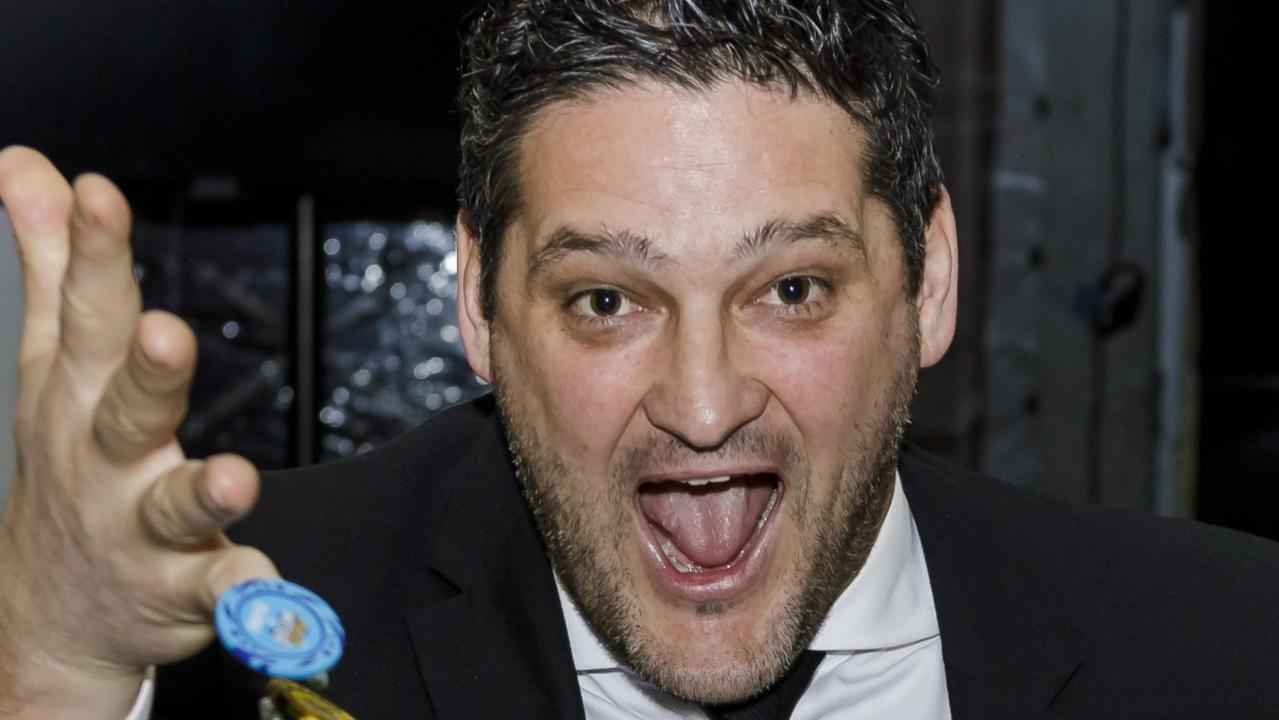Jim Courier says passionate players like Nick Kyrgios, Serena Williams are good for tennis
Tennis legend Jim Courier says tennis needs emotional players like Serena Williams and Nick Kyrgios to make the sport appealing. And as an outspoken player who was often fined for bad on-court behaviour, he can relate to their passion.
Fiona Byrne
Don't miss out on the headlines from Fiona Byrne. Followed categories will be added to My News.
Tennis great Jim Courier has been a regular visitor to Melbourne over the past 30 years.
The former world number 1 was twice victorious at the Australian Open and has forged a post playing career as one of the sport’s most knowledgeable and entertaining commentators.
As Courier, 48, prepared to head back to Melbourne next month as part of Channel 9’s Australian Open broadcast team, I chatted to him about tennis, tantrums, the will to win, teeing off against John McEnroe, and playing drums on stage at the Myer Music Bowl.
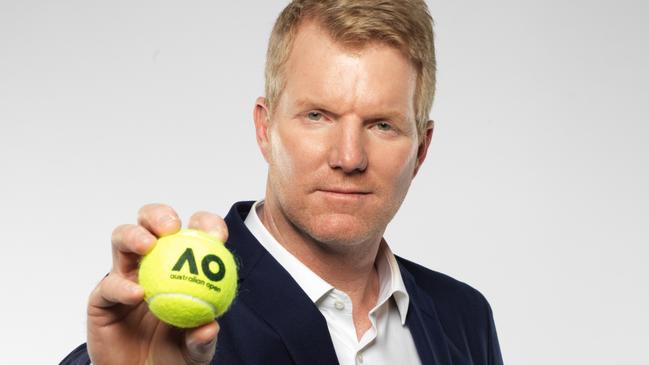
Jim, you have been part of the Australian Open since the early 1990s either as a player or commentator. Is Melbourne something of a second home for you?
“It really is. I don’t know what it would feel like to be anywhere but in Melbourne the last two weeks of January, to be honest. I feel like most of my life I have been there. It is going to be exciting to be part of Channel 9’s coverage. They have built an impressive team and I am very pleased to be part of it.”
Any favourite Melbourne spots?
“I am a Flinders Lane rat. When I’m in Melbourne I stay around there and I eat in all the restaurants from Movida to Chin Chin. And I have my coffee shop. I love The Fair Trader, it is a great spot.”
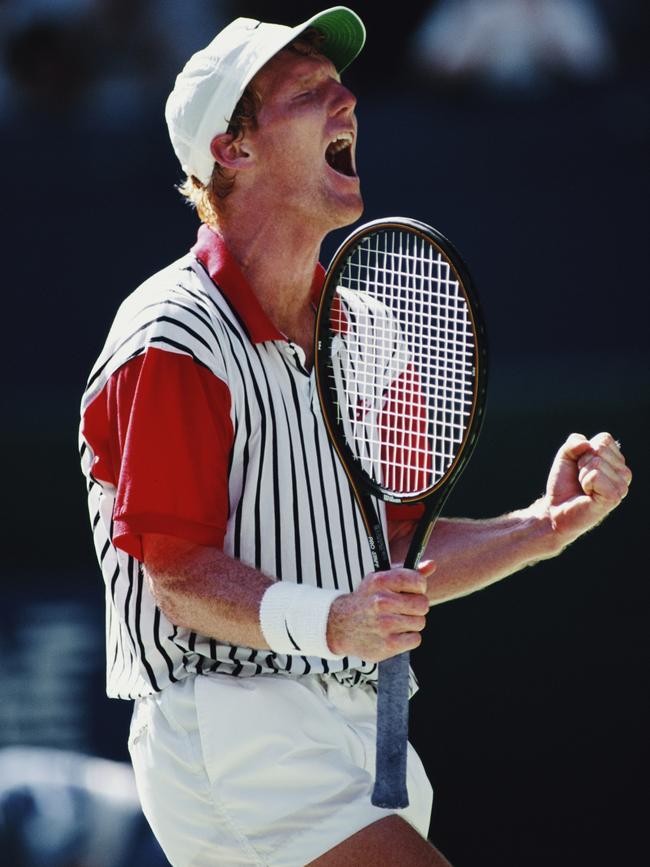
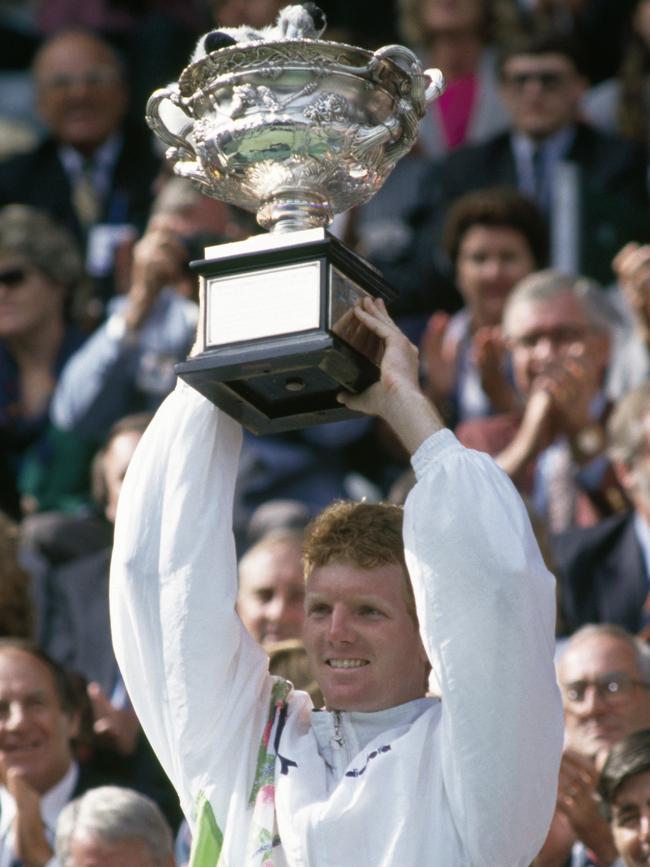
During your playing career you won four Grand Slam singles titles and reached number 1 in the world, but tennis was not the only sport that interested you when you were young?
“My father was a college baseball player in America and we played a lot of baseball as a family. I played organised baseball until I was 13, I played two years of organised soccer, as well, when I was 9 and 10 and I was playing tennis tournaments all the while from the age of 7. Tennis was more happenstance for me than anything else because my parents liked to play it at a social level with their friends. My sister and I would go out and wait for a chance to hit tennis balls with my parents after they were done playing against their friends and that is how I fell for it.”
It sounds like you were born with a competitive spirit.
“I fell pretty hard for competitive sports at a young age. I was playing competitive baseball, soccer and tennis early and it was fun, don’t get me wrong, but I liked the competition. I wanted to go out and see if I could win. I started playing national (tennis) tournaments at the age of 11 and left home when I was 14 to go to Bollettieri’s Tennis Academy to see if I could be a professional.”
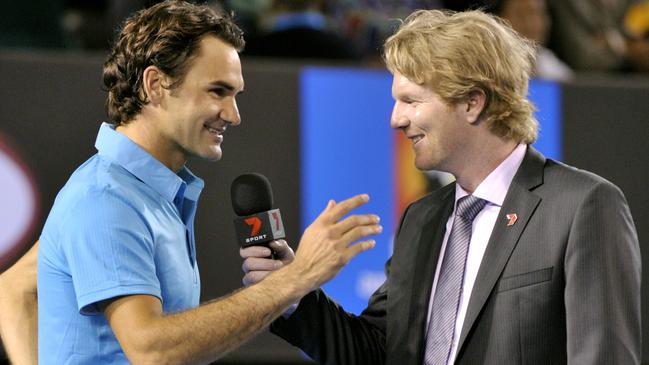
What was it about tennis, a very individual sport, that made you chose it over the team sports you had been excelling at?
“I think what was probably the tipping point for me was there was a clear cut ranking system in the United States for tennis players that didn’t exist for team sports. I had no way of knowing how good I was in baseball compared to the rest of the United States, but I knew in tennis that I was the fifth ranked player in the United States at the age of 14. I was at the academy with quite a few players who ended up being significant players in the world; Goran Ivanišević was there for a time, David Wheaton, MaliVai Washington. We were all chasing the same dream and were pushing each other. It was a wonderful, competitive atmosphere if you wanted to be there, which I did. My purpose was to be as good as I could be. Being number 1 (in the world) was not really something that was on my radar screen until I was top 10 in the world.”
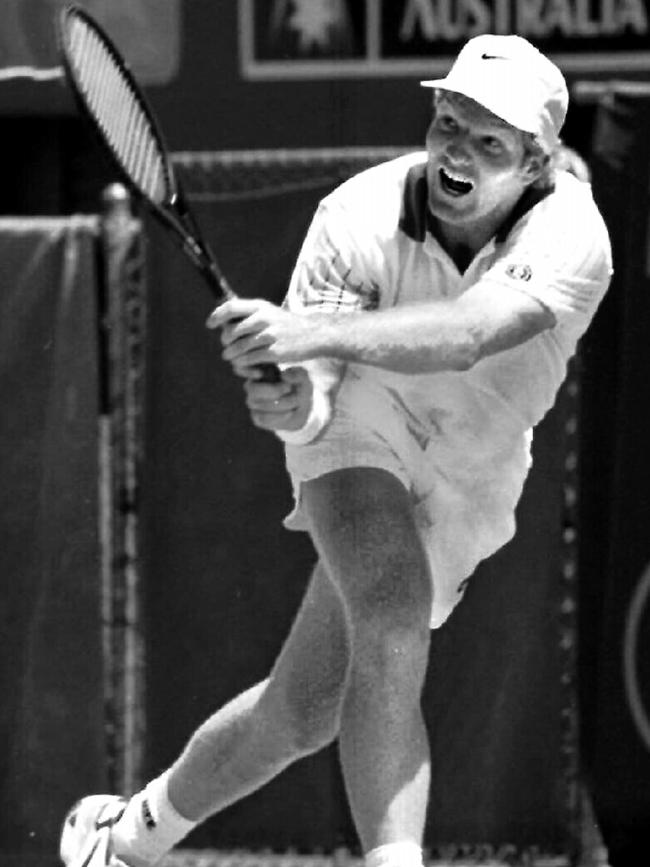
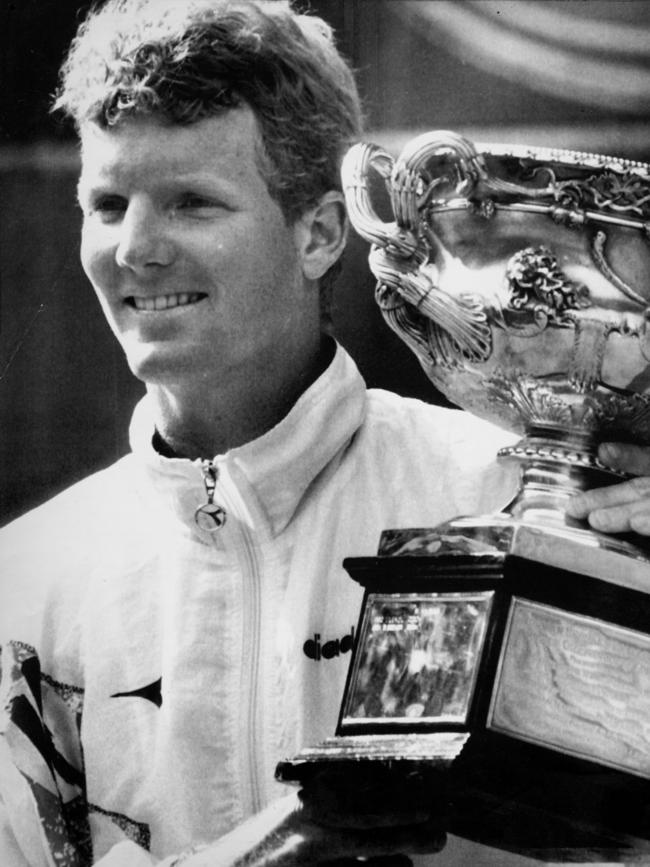
Have you got any advice for people on achieving success?
“You have to map out a game plan to get the best out of whatever it is you have. For me success is being a maximiser, being someone who gets the absolute maximum out of their ability. For some tennis players getting to 200 in the world is an amazing achievement and for others getting to 10 in the world is an incredible disappointment because they did not get the most out of themselves. It is all about what your abilities are and how you are able to harness them and how much effort you put into it. My view is people who put everything they have into getting the most out of themselves, those are the biggest successes in the world but they may not be the people that you read about, hear about, or know about. You are born with capacity, you are born with ability but it all has to be worked on and honed and turned into a mastercraft.”
You won the Australian Open title in 1992 and 1993. What do you remember about those victories where you beat Stefan Edberg on both occasions?
“I had played Stefan in the finals of the US Open in 1991 and he had destroyed me in three sets and I had to play him in the finals of the very next major which was the 1992 Australian Open. I was worried about getting blown out again. Once I had got a set on the board in my favour I felt much more comfortable and was able to find my way to victory lane. I was more confident by ‘93, for sure, having beaten him in ‘92. Stefan is, and was, an amazing champion but I certainly felt I had a really decent chance and I was playing, maybe, at my absolute apex in that tournament in 1993.”
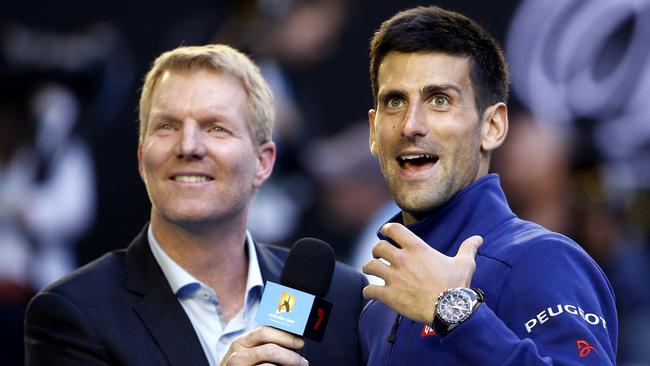
Your Yarra River victory dips in 1992 and 1993 have stood the test of time as one of the more memorable — and possibly foolish — ways to celebrate a Grand Slam title.
“You have to blame the man who is currently coaching Kevin Anderson, Brad Stine, for that. He was my coach then. He had said in 1992 ‘if you win this tournament I am diving in that river’ because we would do our cool down jogs every day alongside the Yarra. I said if I win the tournament I will jump in with you and we did it two years in a row. We were happy to do it, but we were appalled to find out how filthy the river was. We did not know that in 1992 but in 1993 we certainly did and we still went in.”
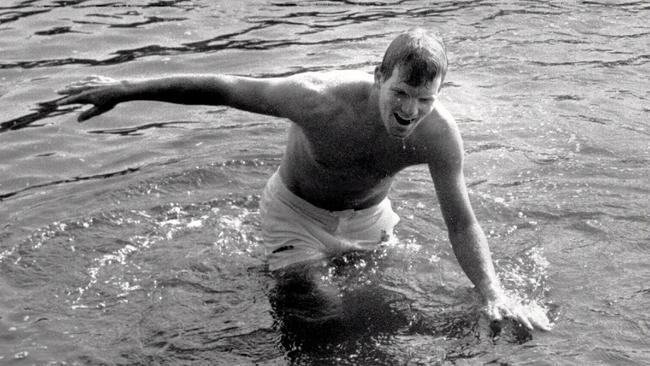
Tell me about the ad hoc all-star band of which you, Pat Cash, Yannick Noah, John McEnroe and others were part of during your tournament days.
“That was a time when we had a lot of players like myself that were very interested and avid hack musicians and we would get together from time to time at tournaments and make a hell of a noise. These days tournaments just seem to be a little more buttoned up. I am a passionate listener of music and still have guitars and drums in my house and make a mess every now and again. I think IMG has long done a party at the Crown Casino that seems more of a fashion type party where players dress up and it is more for the red carpet, it is not quite as loose as the party that we used to get involved in. It’s a DJ era. It is little bit tidier. You don’t crank up the amplifiers the way we used to do it.”
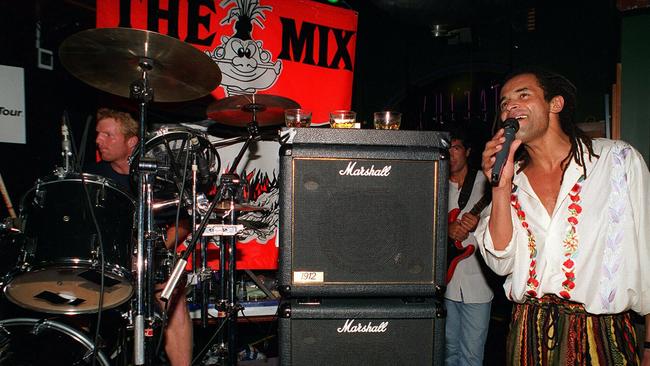
You have played with some serious musicians over the time.
“REM, I played with them at the Myer Music Bowl (on drums in 1995). I have been on stage with Lars Ulrich from Metallica, who is a very good tennis player. I have played tennis with him as well. Music is a big part of my world.”
As well as tennis and drums, you are pretty handy at golf.
“I am a three handicap, but I am not good. It (playing off 3) is not bad, but it is not good and therein lies the rub. You always want to be better than you are at golf and that is where I find myself.”
You have been playing a bit of golf with tennis great and fellow Channel 9 Australian Open commentator, John McEnroe. Is he as competitive on a golf course as on a tennis court?
“John has turned into a keen golfer lately. He is competitive in everything he does. He doesn’t stand for less than perfection in everything he does. So if he hits a shot that he doesn’t like, you will hear about it on the golf course or the tennis court. That is one of the great things about John, he is every bit as intense as when he came on to the public scene and I love that about him.”
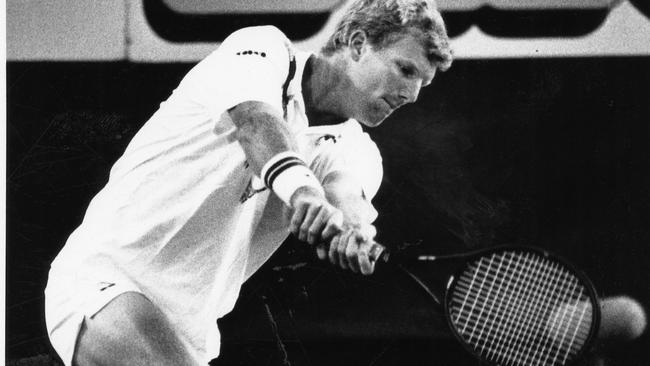
Some would describe Serena Williams’ US Open behaviour and Nick Kyrgios’ regular on-court blow ups as tantrums. Are tantrums good for tennis?
“Tantrum is not a word I often use to describe tennis but emotion is a word that I would choose to use as a positive for tennis. Emotion comes in many different forms. Emotion can cause people to sit on the edge of their seats at home when they are watching, or in the stands they pay a little bit more attention because they can tell the players are emotionally invested. We want people to know that the players care and we want people watching to care. You don’t want a bunch of robots out there playing.
Just because someone (a player) has negative emotion does not mean it is necessarily that bad for the game, because it can bring people in to watch it. Even if they are cheering against that person they are still watching, and that is what is important for the health of the sport. It is not necessarily a bad thing to have different characters in the game. What you want is people who are interesting to the general sports fan or the general television viewer and not just the tennis viewer. I want to be clear, however, that I am not condoning poor behaviour from anyone and I am not saying that I never showed poor behaviour, because I certainly did at times. I was given plenty of warnings and fines because I am a passionate person too.
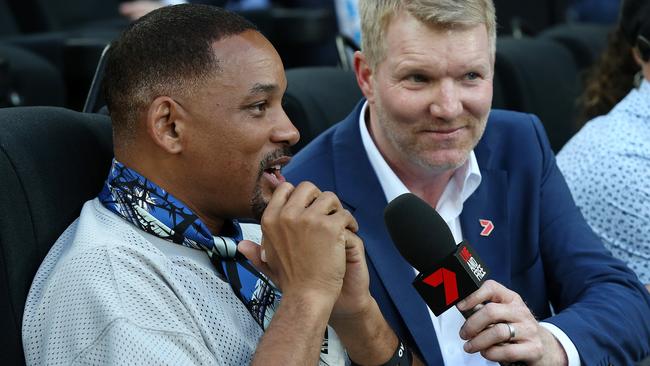
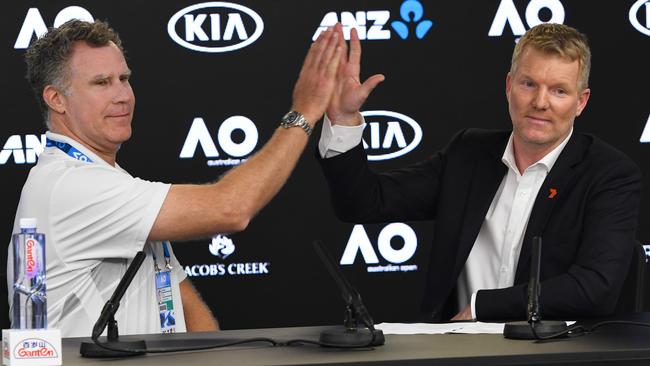
The Australian Open begins on January 14 who are your early picks to win?
“Right now in the men’s game you have to favour Djokovic. On the women’s side it is a much murkier picture. The last eight majors have been won by eight different women so it is hard to pick a favourite. Caroline Wozniacki played such a wonderful tournament last year, could she repeat? Absolutely. But there are a handful of other women who could make a move. Aryna Sabalenka has come a long way and she looks to me like she is going to win a major soon, so she could surprise but she could also lose first round.”
Finally, you have two young sons. Would you encourage them to pursue a tennis career?
“I want my kids to have a good time whatever they choose to do. We are exposing them to tennis, golf, soccer, baseball, monster trucks and slides and swings. If it turns out they like tennis we will certainly help them pursue their dreams and if it turns out they like other things we will follow their lead.”


